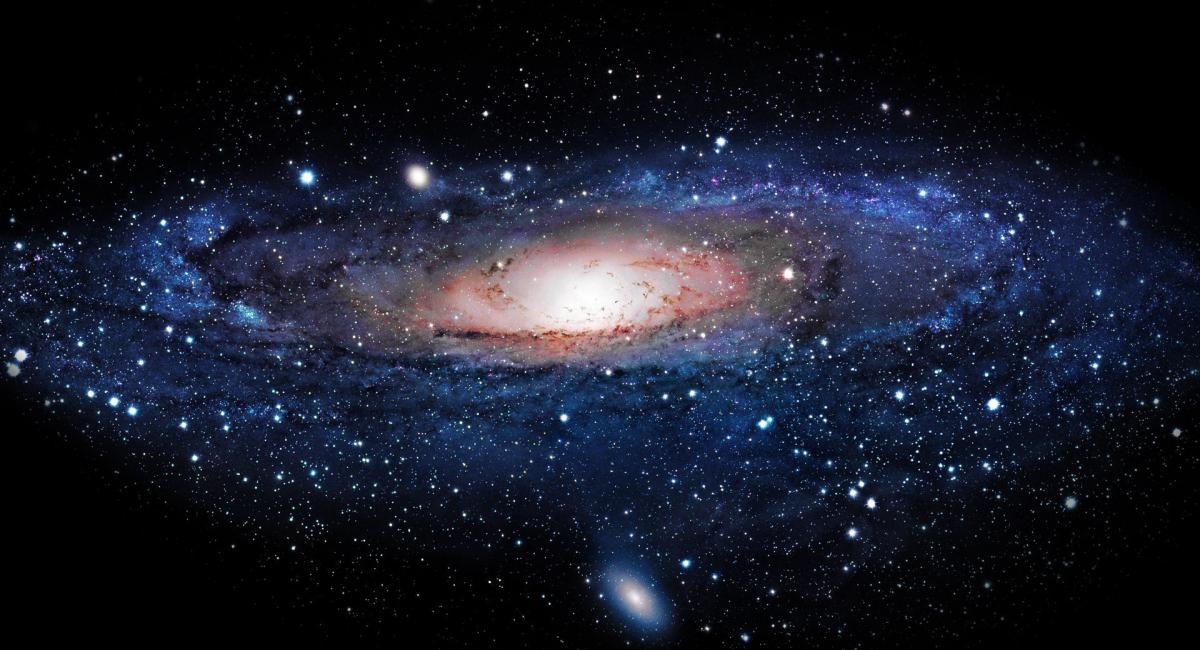
The cosmic is a vast and fascinating subject that has intrigued humanity for centuries. From the mesmerizing beauty of distant galaxies to the mind-boggling phenomena that occur within black holes, the cosmic universe never fails to leave us in awe. In this article, we will delve into 11 surprising facts about the cosmic that will expand your understanding of the universe and its wonders. Brace yourself for a journey through the cosmos as we explore mesmerizing celestial bodies, unravel mind-bending theories, and unveil intriguing discoveries that have captivated astronomers and space enthusiasts alike. Get ready to have your mind blown by the incredible mysteries and astonishing realities lurking within the vast expanse of the cosmic universe.
Key Takeaways:
- The universe is a vast and mysterious place, with billions of galaxies, mysterious black holes, and dense neutron stars. There’s always something new and surprising to discover in the cosmic expanse.
- From the cosmic microwave background radiation to the accelerating expansion of the universe, there are countless mind-boggling phenomena waiting to be explored. The cosmic web connects galaxies through vast cosmic filaments, creating an intricate network that shapes the universe.
The Milky Way is just one of billions of galaxies in the universe.
Did you know that our very own Milky Way is just a tiny speck in the grand scheme of things? With an estimated 100 to 400 billion stars, it is merely one of the countless galaxies scattered throughout the cosmos.
Black holes are one of the most mysterious phenomena in the universe.
With their immense gravitational pull, black holes are cosmic beasts that even light cannot escape. These enigmatic entities continue to fascinate scientists and astronomers as they strive to understand their nature and behavior.
The universe is around 13.8 billion years old.
Take a moment to fathom the vastness of time. The universe itself is estimated to be around 13.8 billion years old, a mind-boggling age that spans countless cosmic events and transformations.
There is a giant void in the cosmic web called the Hercules-Corona Borealis Great Wall.
This cosmic structure, stretching over a billion light-years, is one of the largest known structures in the universe. It consists of a gigantic void surrounded by a vast celestial web of galaxies and cosmic matter.
Dark matter comprises about 27% of the universe.
Although it cannot be directly observed, scientists believe that dark matter makes up a significant portion of the cosmic mass. Its mysterious nature continues to elude our understanding, leaving many unanswered questions about the universe’s composition.
Neutron stars are incredibly dense.
Formed from the remnants of a massive star’s supernova explosion, neutron stars are unbelievably dense. Imagine squeezing the mass of our sun into a diameter of only about 12 miles!
The universe is expanding at an accelerating rate.
Observations have shown that galaxies are moving away from each other, indicating that the universe is expanding. Even more astonishing is the discovery that this expansion is actually accelerating, fueled by a mysterious force called dark energy.
Supernovas play a crucial role in cosmic evolution.
These spectacular explosions mark the dramatic end of a star’s life and release an incredible amount of energy and cosmic dust into space. These ejected elements go on to form new stars, planets, and even life as we know it.
Cosmic microwave background radiation offers a glimpse into the early universe.
Thought to be leftover remnants from the Big Bang, the cosmic microwave background radiation permeates the entire universe. By studying this radiation, scientists can gain crucial insights into the early moments of cosmic existence.
The cosmic web connects galaxies through vast cosmic filaments.
Imagine a spider’s web on a cosmic scale, with galaxies connected by long, thread-like structures called cosmic filaments. This intricate network plays a crucial role in shaping the large-scale structure of the universe.
The universe is home to countless undiscovered exoplanets.
Exoplanets are planets that orbit stars outside our own solar system. With the vastness of space, it is estimated that there are billions of these alien worlds waiting to be discovered, each potentially holding the secrets of extraterrestrial life.
In conclusion, the universe is an endless source of fascination and exploration. From the vastness of galaxies to the mysteries of black holes and dark matter, there is always something new to discover in the cosmic expanse. So, keep your eyes on the stars and your mind open to the wonders of the 11 Surprising Facts About Cosmic.
Conclusion
Exploring the cosmos is truly a mind-blowing experience. From stunning galaxies to mysterious black holes, the universe never fails to astound us. Throughout this article, we have uncovered 11 surprising facts about cosmic phenomena that have expanded our understanding of the cosmos.
From the discovery of ancient stars whose light predates the formation of our own planet, to the mind-boggling number of galaxies in the observable universe, these facts highlight just how vast and awe-inspiring the cosmos truly is.
Whether it’s the existence of dark matter, the strange behavior of neutron stars, or the incredible speeds at which galaxies are moving away from each other, each fact serves as a reminder that our universe is a constantly evolving and mysterious place.
As we continue to push the boundaries of space exploration and scientific discovery, we can only imagine what other surprising facts await us in the vast expanse of the cosmic unknown.
FAQs
Q: How many galaxies are there in the universe?
A: Scientists estimate that there are at least 100 billion galaxies in the observable universe.
Q: What is dark matter?
A: Dark matter is an invisible substance that makes up about 27% of the universe. Its presence is inferred by its gravitational effects on visible matter.
Q: What is a black hole?
A: A black hole is a region of spacetime with extremely strong gravitational forces, from which nothing, not even light, can escape.
Q: Are there other habitable planets in the universe?
A: It is a possibility. Scientists have discovered thousands of exoplanets, some of which are located in the habitable zone of their star, where liquid water could exist.
Q: What is the age of the universe?
A: The age of the universe is estimated to be around 13.8 billion years.
Q: How do stars form?
A: Stars form from dense regions of gas and dust called molecular clouds. Gravity causes these clouds to collapse, leading to the formation of stars.
Q: Can we travel to other galaxies?
A: Given the vast distances between galaxies and our current understanding of physics, it is currently impossible to travel to other galaxies.
Q: Is there life on other planets?
A: The existence of extraterrestrial life is still unknown. Scientists are actively searching for signs of life on other planets and moons within our own solar system.
Q: What is the fate of the universe?
A: The ultimate fate of the universe is still a topic of scientific debate. It could continue expanding indefinitely or experience a “Big Crunch” or “Big Freeze” scenario.
Q: How are galaxies formed?
A: Galaxies are formed through the gravitational interaction of dark matter, gas, and dust, which come together to create vast structures of stars and other celestial objects.
Q: What is the Cosmic Microwave Background radiation?
A: The Cosmic Microwave Background radiation is the afterglow of the Big Bang and is a faint radiation that permeates the entire universe.
Cosmic wonders never cease to amaze! From the enigmatic nature of cosmic shear calibration to the surprising nutrition facts about cosmic brownies, there's always more to learn. Don't forget about the fascinating intricacies of the cosmic web, connecting galaxies across vast distances. Explore these captivating topics and expand your knowledge of the universe!
Was this page helpful?
Our commitment to delivering trustworthy and engaging content is at the heart of what we do. Each fact on our site is contributed by real users like you, bringing a wealth of diverse insights and information. To ensure the highest standards of accuracy and reliability, our dedicated editors meticulously review each submission. This process guarantees that the facts we share are not only fascinating but also credible. Trust in our commitment to quality and authenticity as you explore and learn with us.


